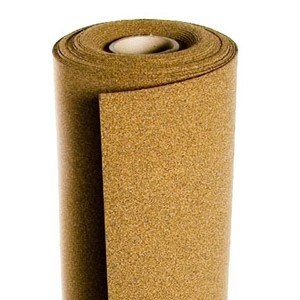Natural Cork Materials – Sealing, Insulation & Gasket Use
ASG stock, supply and convert a range of cork materials, one of which includes a natural cork. Natural cork is manufactured in standard thicknesses in sheet and roll forms (depending upon the material thickness required). Having the cork pre-manufactured at specific thicknesses allows for quick despatch and conversion times as it cuts out the process of having to split the material.
Advanced Seals & Gaskets Ltd state of the art in-house conversion facilities gives us the ability to convert natural cork rolls and sheets into usable products such as pads, gaskets, washers and strips, all of which are made to order using a selecting of bandsaws and presses. Our on-site laminating service not only allows us to bond layers of cork together but also enables us to supply natural cork with a range of self-adhesives, foils and even laminated to other materials.
What is Natural Cork?
Natural cork consists of grains of cork with no other added chemicals other than a liquid binder known as ‘agglomeration’ to adhere the particles together. This cork is stripped from Cork Oak trees approximately every 9-12 years during which time the bark re-grows allowing for the next batch to be harvested. Natural Cork is environmentally friendly and relatively cheap compared to sponge and rubber and can be used as a simple coaster, air, dust, water seals, in thermal insulation, acoustic and anti-vibration applications.
We offer rolls and sheets of natural cork in various thicknesses which allows the customer to cut their own sheets and parts out as required, alternatively, we can convert the material into usable products such as gaskets, washers, pads and strips, manufactured with a choice of finishes including foils, self-adhesives or laminated with other materials to create composite sheets which add further properties.

Material Enquiry
For information on Natural Cork Materials – Sealing, Insulation & Gasket Use please complete the following quick enquiry or call us on +44(0)1384 252555.
Specification & Key Characteristics
Natural cork is as the name states are natural in colour, lightweight and has some flexibility. This material is impermeable to liquids and gases, meaning it is an excellent sealing material and therefore resistant to moisture damage and decay.
Natural cork is a great material for use in thermal, acoustic and vibration insulation applications, providing protection against varying temperatures and chemical or odour contamination. Cork is often utilised within the building and construction industries to provide underfloor insulation and for waterproofing.
Full technical data can be supplied upon request,
or downloaded from our online portal.
Help and guidance
If you would like to speak to a representative to discuss your specific application or requirements please call our sales office direct on 01384 469100, alternatively you can send an E-mail. Simply click on the link and forward us your details along with your question and we will contact you immediately.
Samples - Technical Natural Cork Materials – Sealing, Insulation & Gasket Use
Samples can be submitted for testing upon request.
Call now for sample requests or further help.
Why use Natural Cork?
Natural cork is used in many industries and is popular thanks to its number of excellent properties including being lightweight, can withstand high pressure without degrading and is highly tear-resistant. This material is a cheaper alternative to some sponge and rubber gaskets with high mechanical strength, a working temperature range of -80°C - 140°C and is excellent for water and gas sealing applications even when used outdoors.
Natural cork is chemically inert, doesn’t absorb odours, has thermal, sound and vibration insulation properties therefore often utilised within the automotive industry and as a base material under heavy plant machinery, pumps and compressors to reduce noise and vibration levels.
Benefits of Natural Cork
- Sound Suppression
- Thermal Properties
- Bonded with other materials based on application
- Anti-Vibration
- Resistance to weathering
Different Grades of Cork Available
Along with natural cork, there are other different grades of cork used within many industries each with its own unique characteristics, depending upon the material it is blended. Grades of cork include Neoprene Bonded, Nitrile Bonded and Resin Bonded
Neoprene bonded cork is suited to sealing at higher temperatures and resistant to weathering and oil. Neoprene Bonded cork is suited to oil, engineering, electrical, anti-vibration and soundproofing applications.
Resin-bonded cork – a lightweight, flexible cork, produced using cork granules bound together using a synthetic resin. This grade of cork is resilient to certain acids and is often used in water retaining applications.
Nitrile bonded cork – manufactured using a combination of cork and nitrile rubber granules, giving a speckled appearance. Gaskets made from this material can be used where oil and fuel resistance is required, or where high-temperature resistance is required, industries include automotive and general engineering.
Please contact us using the form below or by calling us on +44(0)1384 252555.





















